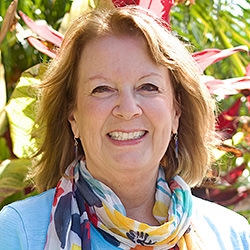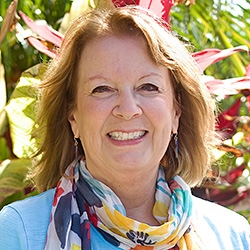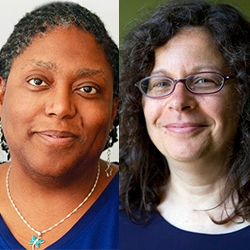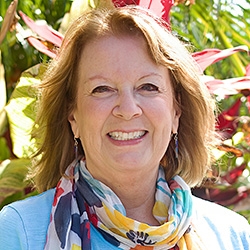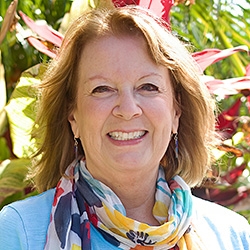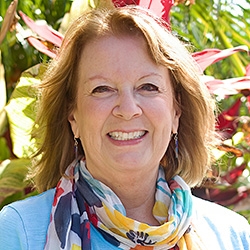
Search Results: trust
-
It is 5:30 in the morning. I am sitting in a medical facility waiting for my wife, Kim, who has just gone in for a minor surgical procedure. I have only had a couple of hours of sleep and I can barely keep my eyes open. I am not very worried, but am a little worried about Kim. The kind of worry that happens to me when anyone I love (human or animal) is put “under” anesthesia.
-
Listen as Mary Mackenzie shares an eight step path to create your own NVC learning activities, based on your own NVC learning experience. In this session, Mary uses the value of requests and observations as teaching examples.
-
- Deepen your capacity for self-acceptance and self-compassion
- Bring greater compassion to your relationships
- Increase your capacity for vulnerability and mourning
- Enhance your sense of trusting your own place in life, as well as your purpose
-
Come. Let us journey together into our own authentic Life force: the essential living energy that permeates all of our lives.
Your journey will begin at the center: with the divine / life force, or soul force.
Robert Gonzales shares how this fundamental life energy is the tender expression of your inner being, or soul. It unfolds through the heart as your deepest longings, which manifest themselves in all forms of human needs and values. When you live from the energies of compassion, creativity, love, and clarity – while remaining wholly grounded and aware of needs and values – then you are living your passion… You are living the Self-In-Life.
-
Dear readers,
I’m writing this letter from Bangalore, India. The monsoons have begun in the South of India after a long, dry summer and we’re grateful for the rain.
-
The more we can support an interdependent flow of resources and energy in society and the economy, the greater we can increase both natural abundance and the chances of averting extinction. Accumulation is a strategy born of mistrust. It’s an attempt to control the flow of life to guarantee that we will have enough for the future. Accumulation and exchange has blocked this interdependent flow. We can transform this blockage by uncoupling giving from receiving, and shedding excess as much as we can, so that energy and resources can travel further to those in need.
-
Our craving for love, acceptance, and approval can lead us to show only parts of ourselves and hide others. This lack of authenticity breeds disconnection and mistrust, leading to those very needs not being met. Once I accept myself, being authentic is easier. And then people in my life can love me for who I really am, warts and all.
-
- Witness these two visionaries engage with love, openness, and curiosity
- Explore open questions and curiosities you have about NVC
- Help support the ongoing sustainability of NVC Academy
- Expand your thinking within NVC and its relevance to our times
-
Duke Duchscherer shares what the role of the facilitator is in a restorative circle.
-
Sitting with not knowing is an NVC skill because its the opposite of reactivity. In our haste to find relief from the discomfort of not knowing, we often become defensive, jump to conclusions, and blame and criticize others. Sitting with not knowing requires us to suspend our distrust, tolerate fear and uncertainty - creating space within us. NVC provides a way forward to enter into a space of wonder, possibility, and creativity.
-
We each hold an internal model or set of expectations about how caring and comfort could be accessed in relationship. The ability to reflect upon and challenge our own dominant model of perceptions, beliefs, and behaviors --and to experience discomfort and vulnerability-- is a key feature of "security". If not, an "attachment reactivity" arises -- where sense of insecurity, separateness, and belief that love, and acceptance can't be trusted nor accessed reliably. Thus change would require intensive support. Here's a guide to help you reflect and access change.
-
Trainer tip: Empathy can offer profound learning opportunities to children, expand their feelings and needs vocabulary, and teach them the positive results of valuing everyone’s needs. Read on for a story that illustrates this.
-
We all love to contribute to others’ lives. We love to offer support because it meets our own needs for contribution, love, caring, and making a difference. For today, admit that you love to support other people, and that you would like support yourself. Let at least one person contribute to your life today. Read on for a related story.
-
Trainer tip: From the NVC perspective, everything someone says or does is either a “please” or a “thank you". In our culture, saying “thank you” usually involves an appreciation in the form of judgment or evaluation. Remember, whether we judge someone as good or bad, judgments and evaluations can create disconnect or tension. Instead, notice how their actions have enriched life, and what feelings it stimulated.
-
Where do you feel desperation, resentment, anger about your partner's choices? What do you want to demand of them? Rather than looking for what they're suppose to do, look for your feelings and needs, how would you would respond if you trusted your needs could be met without your partner, and what you choose to do given what your partner offers and does not offer.
-
When feeling unworthy, powerless, or afraid, we can hear others' comments as criticism, rejection, demands, limits, or attacks. Practice self-compassion, release attachments, and ask “How can I stretch the boundaries of who I believe myself to be, in service of love?”. Try replacing love with a word that inspires you (e.g. freedom, thriving, etc). Note answers that arise later. Or explore the question with a trusted person or in a journal. Read on for examples.
-
Even in a conflict, you can offer emotional safety without being enmeshed -- and you can do this without sliding into strategies to gain power over another. You can prioritize connection, express your intention, make space for mutuality, honestly reveal what you care about and propose a way forward. This means caring for your needs regardless of their response -- and mourning if their response isn't what you want. Read on for more.
-
-
-
Ask the Trainer: "I am wondering what to do with a judgment that is expressed by someone about me. In these situations I can't find the unmet need they are expressing (other than perhaps significance)."

